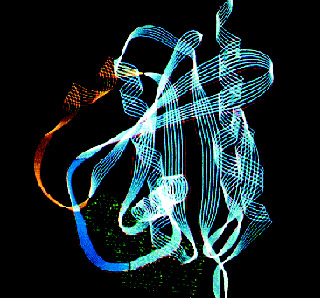
The ras protein is a molecular switch that controls cell growth, including in cancer cells. (Image courtesy of the U.S. Department of Energy Human Genome Program.)
Instructor(s)
Dr. John Randell
Dr. Robyn Tanny
MIT Course Number
7.340
As Taught In
Fall 2006
Level
Undergraduate
Course Description
Course Description
In this class we will learn about how the process of DNA replication is regulated throughout the cell cycle and what happens when DNA replication goes awry. How does the cell know when and where to begin replicating its DNA? How does a cell prevent its DNA from being replicated more than once? How does damaged DNA cause the cell to arrest DNA replication until that damage has been repaired? And how is the duplication of the genome coordinated with other essential processes? We will examine both classical and current papers from the scientific literature to provide answers to these questions and to gain insights into how biologists have approached such problems.
This course is one of many Advanced Undergraduate Seminars offered by the Biology Department at MIT. These seminars are tailored for students with an interest in using primary research literature to discuss and learn about current biological research in a highly interactive setting. Many instructors of the Advanced Undergraduate Seminars are postdoctoral scientists with a strong interest in teaching.


